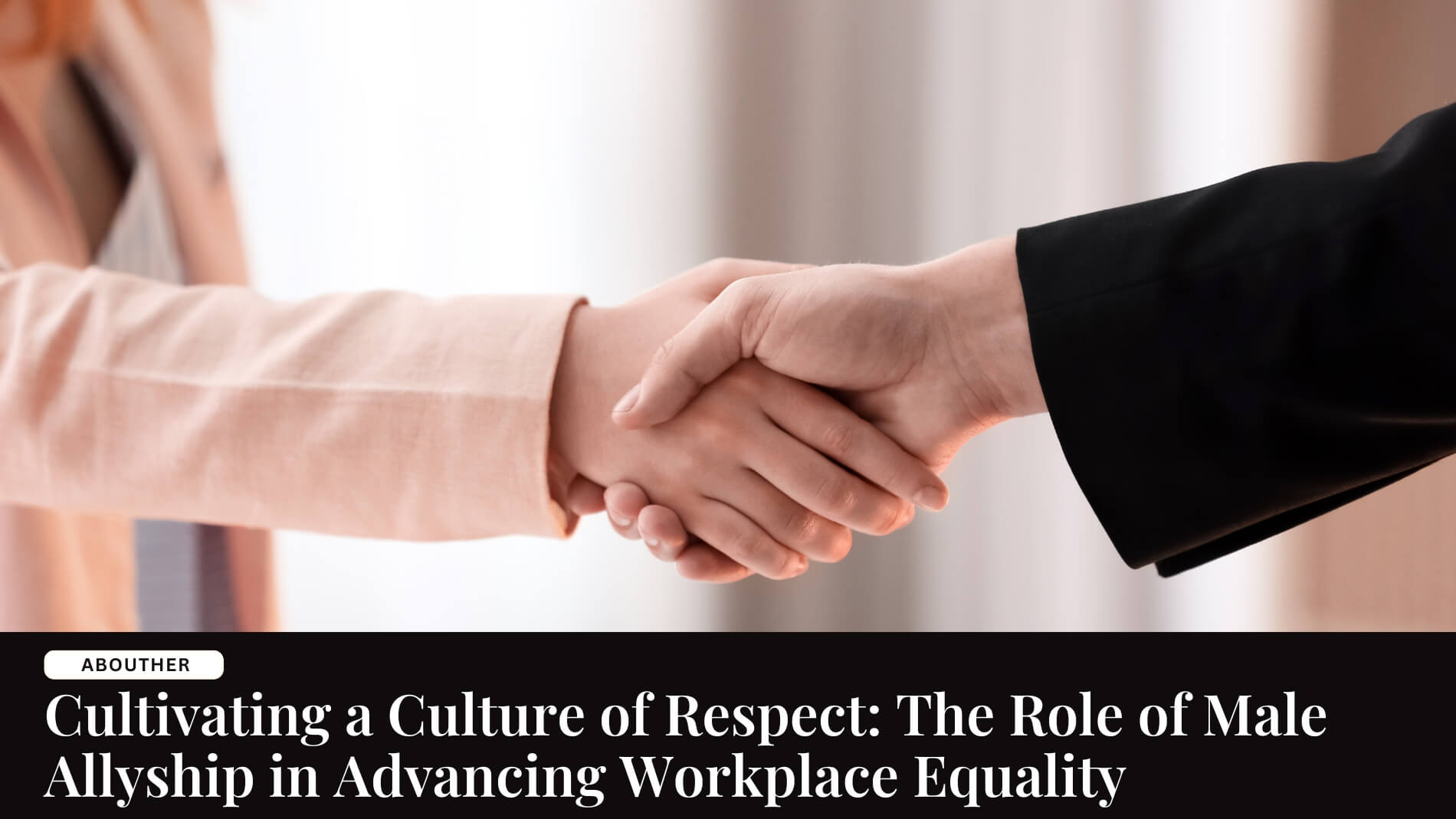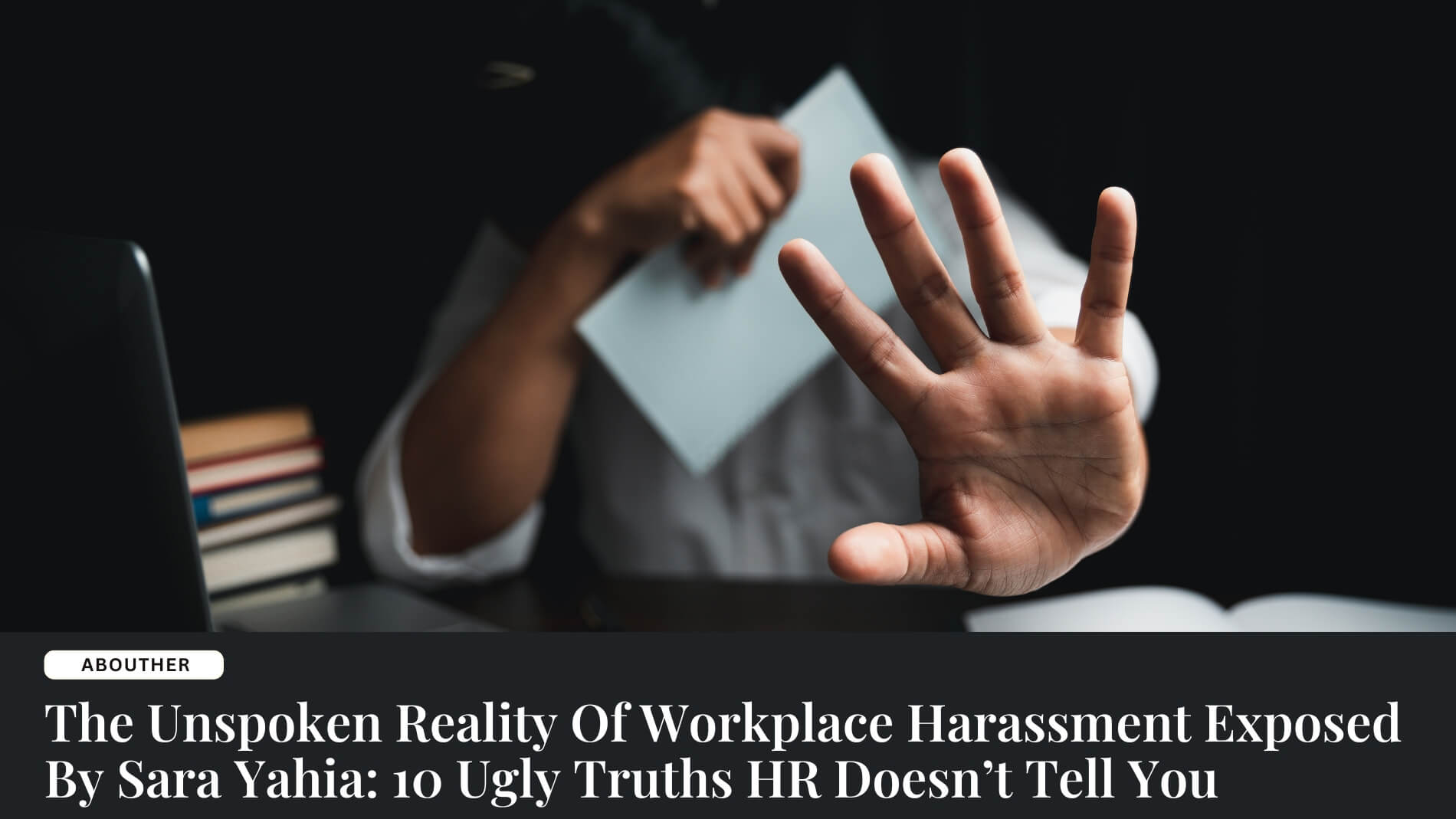Cultivating a Culture of Respect: The Role of Male Allyship in Advancing Workplace Equality
Editor’s Note
In today’s conversations around workplace equity, one voice that’s often overlooked—but critically important—is that of the male ally. This article offers a powerful reminder that gender equality isn’t just a women’s issue—it’s a human issue that demands the partnership of all. By spotlighting the role of men as allies, advocates, and co-creators of inclusive cultures, we hope to encourage dialogue and reflection on what true support looks like. Respect, safety, and opportunity should never be negotiable—and together, we can build workspaces where every individual feels seen, heard, and empowered.
— Editor, AboutHer Mag
Culture of Respect: The Role of Male Allyship in Advancing Workplace Equality
Imagine a workplace where every individual feels safe, valued, and empowered to reach their full potential. This is not a distant ideal but a vision of what’s possible when outdated gender norms give way to mutual respect and collaboration. While fostering such a culture requires the collective effort of all employees, the partnership between men and women is particularly crucial. Women must feel confident in asserting their rights, while men must actively respect and protect those rights—challenging behaviours that fall short of fairness and dignity.
Reframing Culture: Safety and Respect as Cornerstones
Creating a respectful and inclusive workplace extends beyond drafting progressive policies. It requires a cultural transformation—one in which fairness and equity are embedded in every layer of organisational life. Everyone benefits when such a foundation exists. In this context, men have a vital role to play—not just as bystanders or well-meaning colleagues but as active allies, advocates, and catalysts for change.
Also Read: Not Just Living but Thriving Golden Agers
Culture is shaped by everyday behaviours—what is celebrated, what is tolerated, and what is ignored. When leaders and team members alike commit to holding themselves accountable to standards of respect, inclusion, and empathy, workplaces begin to shift. A culture of respect must become so deeply embedded that it governs not only formal interactions but also hallway conversations, mentorship dynamics, and watercooler chats.
Establishing Strong Support Systems
A truly inclusive environment depends on more than good intentions. It must be supported by reliable, transparent, and equitable systems designed to prevent and address misconduct. These include internal committees, grievance redressal mechanisms, whistleblower policies, and clear escalation channels—which serve a dual purpose: upholding individual dignity and building institutional trust.
These frameworks are not symbolic—they are critical. When employees understand how these systems work and trust their fairness, they are more likely to utilise them. This transparency fosters a culture where accountability is expected, misconduct is not tolerated, and individuals feel secure in speaking up.
Male allyship plays a key role here. By supporting the development and strengthening of these systems, men can help ensure they are fair, responsive, and continuously improving. Leaders, in particular, must not only endorse these systems but model their use and responsiveness. This signals that the organisation is committed to creating not just a safe space on paper, but in practice.
Male Allyship in Action: From Intention to Impact
Allyship is not passive. It demands deliberate, consistent, and visible action. Men who aspire to be allies must commit to fostering equity in tangible ways. Here’s how:
1. Learn and Share
Educate yourself on the barriers women face—such as unconscious bias, microaggressions, and structural inequalities. Read, listen, and engage in discussions. Share this knowledge with peers to raise awareness and drive change.
2. Amplify Women’s Voices
Support women in meetings and collaborative spaces. Recognise their contributions publicly and create space for them to lead and be heard. If a woman’s idea is overlooked, repeat and attribute it to her.
4. Challenge Injustice
Speak out when you witness inappropriate behaviour, sexist remarks, or exclusion. Silence can be perceived as complicity—your voice matters. Be the person who interrupts harmful behaviour and reinforces boundaries.
5. Champion Women’s Growth
Go beyond mentoring. Sponsor women for leadership opportunities, critical projects, and strategic roles that elevate their careers. Use your influence to open doors that have historically been closed.
6. Model Equity at Home and Work
Advocate for work-life balance and model shared responsibility in caregiving. Encourage equitable policies, such as flexible work arrangements and parental leave, for all genders.
7. Invite and Embrace Feedback
Foster an environment where women feel safe offering feedback—on team dynamics, culture, or interpersonal interactions. Listen with openness and humility, and act on what you learn.
Also Read: Where the Mountains Healed Me
8. Embed Inclusion in Daily Practice
Make inclusion a default—whether in hiring, promotions, or decision-making. It shouldn’t be a side initiative; it should be a core business value reflected in KPIs and leadership expectations.
Conclusion: Allyship as a Catalyst for Change
Advancing workplace equality is a shared responsibility—but one that especially calls on men to be intentional in their allyship. By recognising privilege, addressing bias, and promoting fair systems, men can help transform the workplace into one rooted in dignity, inclusion, and respect.
True allyship is not about perfection—it’s about persistence. It’s about showing up, being accountable, learning from missteps, and staying committed to progress. When allyship is embraced as a leadership principle and inclusion becomes standard practice, organisations don’t just become better places to work—they become drivers of meaningful societal change. And in this transformation, everyone thrives.
Share This On Social
![Sangeeta-Relan-AH-525×410[1]](https://slategray-flamingo-696901.hostingersite.com/wp-content/uploads/2024/06/Sangeeta-Relan-AH-525x4101-1.jpeg)
I’m Sangeeta Relan—an educator, writer, podcaster, researcher, and the founder of AboutHer. With over 30 years of experience teaching at the university level, I’ve also journeyed through life as a corporate wife, a mother, and now, a storyteller.
Recent Posts

















